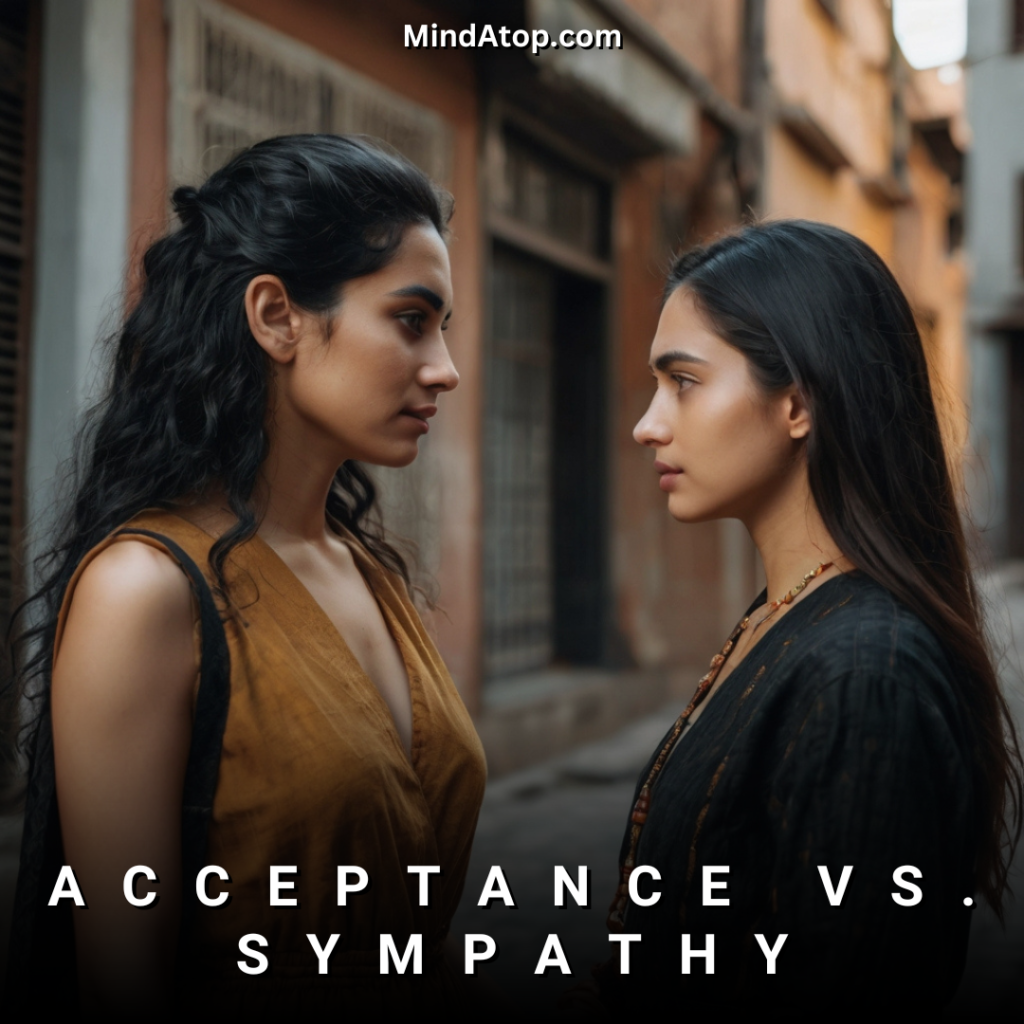Two young women, Neela and Meghna, were very dear friends. Neela had a heart full of compassion, always quick to empathize with others. Meghna, on the other hand, though compassionate, believed in the strength of acceptance and the importance of addressing wrongs head-on.
One sunny afternoon, a controversy stirred in their society. Aisha, a newcomer from a small village, had recently moved in. She was hoping to find a welcoming community. During a local festival, Juna, a popular girl known for her bright smile, made some careless remarks. She had overheard Aisha struggling to find her seat and, in a moment of thoughtlessness, joked out loudly, “Why don’t you just go back to where you came from? We can’t give place to everyone from the villages!” The laughter that followed stung Aisha deeply, leaving her feeling small and humiliated in front of the entire crowd.
The matter snowballed into a tense controversy in the society. Neela felt a rush of sympathy for Juna. “She must be feeling so attacked!” Neela exclaimed to Meghna, her eyes wide with concern. “We should support her. She’s our friend!”
Meghna shook her head, her expression serious. “Neela, Juna’s actions hurt Aisha. Just sympathizing won’t fix anything. We need to understand more what Aisha is going through and help her feel accepted.”
“But Juna is going through a tough time too!” Neela argued, her heart aching for her friend. “Can’t we just show her some kindness?”
Meghna sighed. “Kindness is good, but it can’t replace the need for change. We can’t endorse the wrong by sympathizing. We need to stand for the right with full acceptance of both sides.”
That evening, a community meeting was called to address the issue. The society hall buzzed with chatter, and people filled the benches, anxious to voice their opinions. Neela sat beside Juna, who looked increasingly uncomfortable, fiddling with her bracelet. Meghna took a deep breath and stood up to speak.
“Your attention please,” Meghna began, her voice steady, “we need to acknowledge Aisha’s feelings. It’s essential to listen to her story and understand how Juna’s words affected her.”
The room fell silent, and Neela felt a knot in her stomach. She could sense the tension in the air as Aisha hesitated to speak. Finally, she stood up, her voice soft but clear. “When Juna said those things, I just couldn’t stand it. I had just moved in here, hoping to find friends, and instead, I was made to feel like an outsider. I remember the laughter that followed, and it cut deeper than any words. I wanted to connect, but instead, I was humiliated.”
Neela’s heart sank as she listened. This wasn’t just about Juna being misunderstood; it was about the hurt Aisha endured. Meghna encouraged Aisha to share more, prompting her to express how lonely she felt after the incident. The room began to shift as people listened intently.
Then Juna stood up, her cheeks flushed. “I’m so sorry, Aisha. I didn’t mean to hurt you,” she said, her voice trembling. “I was struggling too, and I let my fears make me say the wrong things. I didn’t realize how my words would affect you.”
Meghna stepped forward. “It’s brave of you to acknowledge that, Juna, but we can’t simply say ‘sorry’ and move on. We need to understand how our actions affect others. Accepting responsibility is the first step towards healing.”
Neela watched as Juna grappled with her emotions. It was painful to see her friend squirm, but Neela knew that healing meant facing the truth. As the discussion unfolded, Aisha spoke again, her voice gaining strength. “What I need is to feel like I belong. I want to be part of this society, not just a bystander. I’ve come here, not to be pushed away.”
Meghna nodded. “And that requires us all to work together. We can’t just sympathize with Juna; we must accept Aisha’s experience and create an environment where she feels welcomed. Let’s be very clear that we cannot go overboard—while it’s important to support Juna, it’s crucial that we don’t ignore her mistake.”
After the meeting, Neela turned to Meghna, tears in her eyes. “You were right. I thought I was helping Juna, but I was just making things worse. Sympathy doesn’t change anything; acceptance does.”
Meghna smiled gently. “We all learn in our own time. True acceptance helps us heal, but it must be balanced with accountability.”
That day, Neela understood the crucial difference between
sympathy and acceptance. As she and Meghna walked home, they shared a warm hug,
feeling the weight of their journey together. They knew that in the space
between sympathy and acceptance, they had built a bridge to healing, not just
for Aisha, but for their entire society.

